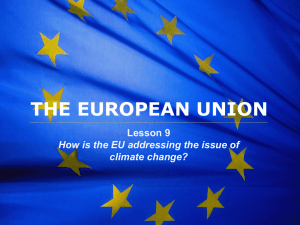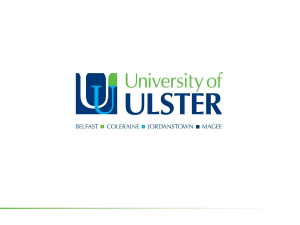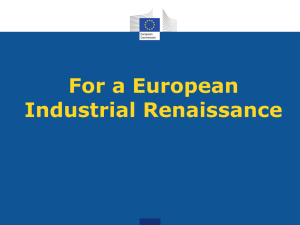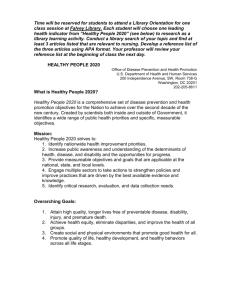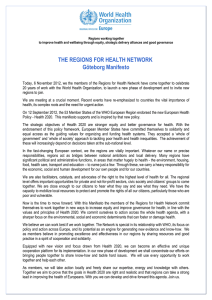Greens demands for CO20 in Lima
advertisement
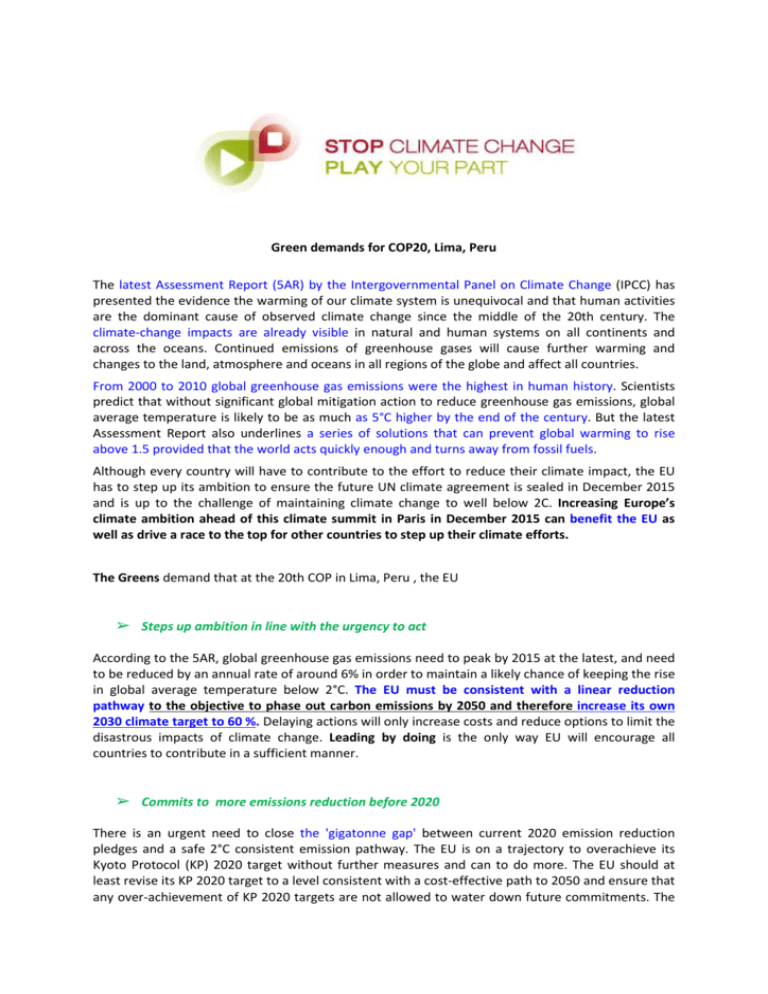
Green demands for COP20, Lima, Peru The latest Assessment Report (5AR) by the Intergovernmental Panel on Climate Change (IPCC) has presented the evidence the warming of our climate system is unequivocal and that human activities are the dominant cause of observed climate change since the middle of the 20th century. The climate-change impacts are already visible in natural and human systems on all continents and across the oceans. Continued emissions of greenhouse gases will cause further warming and changes to the land, atmosphere and oceans in all regions of the globe and affect all countries. From 2000 to 2010 global greenhouse gas emissions were the highest in human history. Scientists predict that without significant global mitigation action to reduce greenhouse gas emissions, global average temperature is likely to be as much as 5°C higher by the end of the century. But the latest Assessment Report also underlines a series of solutions that can prevent global warming to rise above 1.5 provided that the world acts quickly enough and turns away from fossil fuels. Although every country will have to contribute to the effort to reduce their climate impact, the EU has to step up its ambition to ensure the future UN climate agreement is sealed in December 2015 and is up to the challenge of maintaining climate change to well below 2C. Increasing Europe’s climate ambition ahead of this climate summit in Paris in December 2015 can benefit the EU as well as drive a race to the top for other countries to step up their climate efforts. The Greens demand that at the 20th COP in Lima, Peru , the EU ➢ Steps up ambition in line with the urgency to act According to the 5AR, global greenhouse gas emissions need to peak by 2015 at the latest, and need to be reduced by an annual rate of around 6% in order to maintain a likely chance of keeping the rise in global average temperature below 2°C. The EU must be consistent with a linear reduction pathway to the objective to phase out carbon emissions by 2050 and therefore increase its own 2030 climate target to 60 %. Delaying actions will only increase costs and reduce options to limit the disastrous impacts of climate change. Leading by doing is the only way EU will encourage all countries to contribute in a sufficient manner. ➢ Commits to more emissions reduction before 2020 There is an urgent need to close the 'gigatonne gap' between current 2020 emission reduction pledges and a safe 2°C consistent emission pathway. The EU is on a trajectory to overachieve its Kyoto Protocol (KP) 2020 target without further measures and can to do more. The EU should at least revise its KP 2020 target to a level consistent with a cost-effective path to 2050 and ensure that any over-achievement of KP 2020 targets are not allowed to water down future commitments. The EU and other Parties to the Montreal Protocol should make efficient use of its instruments and agree urgently a global HFC phase-down to contribute to climate mitigation. ➢ Ensures key decisions towards Paris 2015 Agreement are taken Last year at the COP 19 in Warsaw countries agreed to put forward their Intended Nationally Determined Contributions - INDCs) for climate action after 2020 well in advance of the COP21 (Paris, December 2015) in a clear and transparent way. The Lima COP needs to agree on the parameters of the INDCs in order to ensure that the intended contributions are transparent and quantifiable, and must set up a process to assess the adequacy and equitability of those commitments. ➢ Increases the support to climate finance The EU must scale up its climate finance towards the Copenhagen Accord commitment of USD 100 billion per year by 2020 for climate action in developing countries. The EU should make proposals for adequate and predictable international climate finance for the 2015 agreement to coincide with the March 2015 deadline for INDCs and ensure that Parties agree on a roadmap for scaling up new and additional finance before 2020, as well as for the Paris Agreement, with mechanisms for accountability and monitoring. The COP should mandate IMO and ICAO to set up measures with effect by 2020 to curb climate impacts of aviation and shipping, in line with the scale and urgency of the climate challenge. Revenues from market based instruments to reduce global aviation and shipping emissions should be dedicated to contributing to post 2020 international climate finance and the Green Climate Fund. The initial capitalisation of the Green Climate Fund for the coming three years should not fall short of USD 15 billion. The EU is the largest donor of international climate finance, but fails to coordinate its contribution. Greens call on EU to act collectively and use revenues of sources of finance that are independent from annual budgetary procedures of Member States. ➢ Ensures that a draft negotiation text of the Paris Agreement The EU must ensure that the Lima Conference sets out the main elements of the 2015 Agreement in the form of a draft negotiation text, built on mitigation, adaptation and means of implementation as essential parts. The future climate deal needs to be binding and applicable to all countries and built on a foundation of a common system for monitoring, reporting and verification of emissions to ensure transparency and accountability of commitments. It needs to fix a collective ambition level in terms of global carbon budget which is consistent with maintaining climate change to below 2°C. The agreement must foresee a regular review process to keep track of science and adequacy of climate action.
